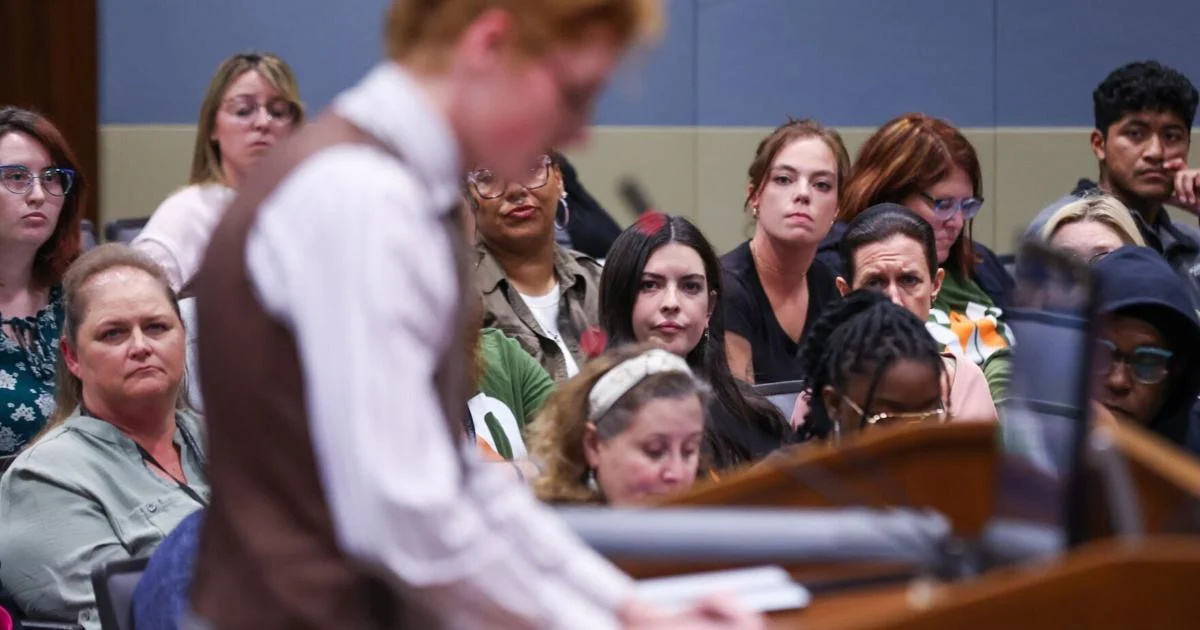
For more than 26 years, Brian Pippitt has been confined to prison for a brutal murder that the state’s top prosecutorial agency now says he is innocent of committing. Wednesday morning, Pippitt learned he will soon be free.
Pippitt, now 63 and suffering from diabetes and other ailments, had been convicted of first-degree murder in the brutal 1998 slaying of an 84-year-old proprietor of a convenience store north of Mille Lacs Lake.
Gov. Tim Walz and Attorney General Keith Ellison voted for the commutation, focusing on Pippitt’s age and health as well as his having served more time in prison than his four other alleged accomplices combined.
The governor and attorney general both said they believe in Pippitt’s innocence after a two-year investigation by the state’s new Conviction Review Unit, or CRU, recommended full exoneration. But they agreed that guilt or innocence ought to be determined through the court system.
The third member of the board, Minnesota Chief Justice Natalie Hudson, voted against the commutation. She focused on how two competing theories of the case remain. The theory of Pippitt’s innocence, argued by Pippitt’s attorneys with the Great North Innocence Project and the national innocence nonprofit Centurion Ministries, was detailed in the CRU report.
But Hudson said the theory of Pippitt’s guilt, which has withstood legal appeals since his 2001 conviction and was argued by a team of experienced law enforcement professionals in their rebuttal to the CRU’s report, remains compelling. She echoed that this was not the venue to determine guilt or innocence.
“You are asking us to be finders of fact. You are asking us to weigh credibility,” Hudson said. “I have a difficult time doing that when the reporting entities don’t even agree.”
Jim Cousins, a Centurion Ministries attorney who has been fighting for Pippitt for more than a decade, said his organization will continue to fight for Pippitt’s exoneration, whether that’s through the courts or with a full pardon.
“We’re delighted he’s not going to have to serve the rest of his sentence, [but] we’ll be proceeding aggressively to show that he’s innocent,” Cousins said.
Flanked by one of his attorneys in the geriatric unit of the state prison, Pippitt was remotely beamed into the meeting adjacent to the Capitol in St. Paul. He read haltingly from a short prepared speech, at one point appearing to choke up as he talked about the loss of loved ones while he’s been in prison.
“The shame, the hate of people thinking I am responsible for not only the death of an elderly woman but the rumors associated with a crime such as this — the fact the truth would surface has kept me going throughout the years,” he said. “I hope to find work and live the rest of the time I have left on this earth in peace.”
After the vote for Pippitt’s commutation, Aitkin County Sheriff Dan Guida, who has worked for the sheriff’s office since before Evelyn Malin’s 1998 murder, said he was disappointed in the politicization of the legal process, from what he saw as a one-sided CRU investigation to a rebuttal not being presented at Wednesday’s Board of Pardons meeting.
“It’s all about politics,” Guida said. “This is not a fight against Brian Pippitt. This is about the truth. My concern is the Conviction Review Unit getting anyone they can out of prison and somehow justify their jobs by questioning the system.”
Walz pointed out how rare commutations are in Minnesota — around a half-dozen in the past several decades, he said. And Ellison pointed out that the CRU’s work proves Minnesota’s criminal justice system is largely working well; of the more than 1,200 application it has received the past few years, Pippitt’s is only the third one where it has recommended relief.
“This question of innocence is incredibly important,” Walz said. “In this space, I am concerned on the safety, the rehabilitation and the chance for justice. Mr. Pippitt’s innocence matters, but I’m very cognizant that we follow the process.”
Pippitt’s niece, Lindsay Misquadace-Berg, said after the hearing that Pippitt plans to move to Onamia in Mille Lacs County, not Aitkin County, and he plans to take care of his aging father.
“We’ll have a dinner and a celebration — not going all out, but a dinner where all of us can be together,” she said.



